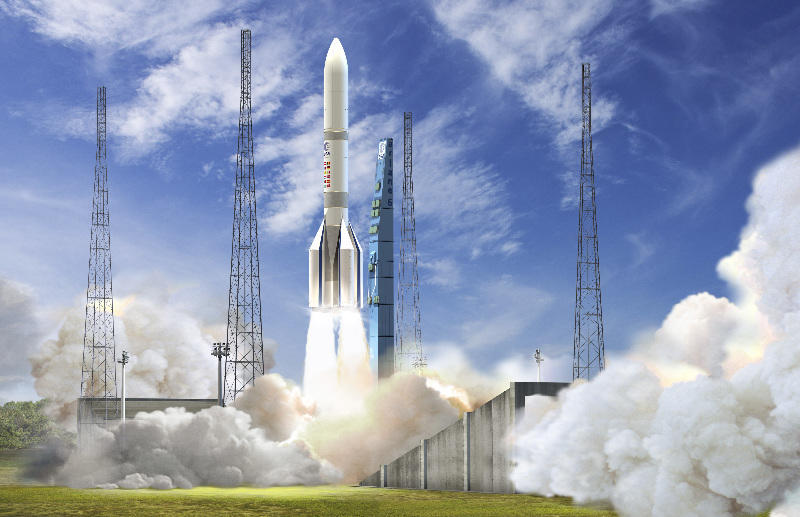The European Space Agency (ESA) concluded a two-day Council meeting at ministerial level in Lucerne, Switzerland on 2nd December. Ministers in charge of space matters from ESA’s 22 member states plus Slovenia and Canada allocated €10.3bn to support space activities and programmes based on ESA’s concept of “a United Space in Europe in the era of Space 4.0”.
The sums allocated by Ministers to allow ESA to reach its future goals can be summarized as follows:
- Maximise the integration of space into European society and economy, €2.5bn
- Foster a globally competitive European space sector, €1.4bn
- Ensure European autonomy in accessing and using space in a safe and secure environment, €1.8bn
- Foundation: excellence in space science and technology, €4.6bn.
The same amounts can also be broken down according to a more traditional approach by programme families, which include: Science, Research and Development (€3.8bn through 2021); Launchers (€1.6bn through 2023); Exploration (€1.5bn through 2021); Earth Observation (€1.4bn through 2025); and Telecom (€1.3bn through 2024).
These figures include Member States' additional subscriptions to already-running optional programmes not tabled at the Ministerial.
The go-ahead for development of Ariane 6 had already been confirmed on 3 November ahead of the Lucerne council meeting. Member States reaffirmed that the Guiana Space Centre (CSG) will continue to serve as Europe’s spaceport and agreed to cover its fixed costs. Preparation for the future beyond Ariane 6 and Vega C will be assured with the development of the Prometheus low-cost oxygen-methane engine.
The ExoMars programme will be pursued with additional funding for ExoMars 2020, while ESA’s mandatory science programme will be funded as requested. Europe’s participation in operating the International Space Station has also been extended through to 2024.
Innovation, development of applications and the competitiveness of the space industry also received significant funding to prepare for the future, notably for space telecommunications through the ARTES budget lines and Earth observation through the EOEP envelope programme, as well as for climate-monitoring satellites and new generations of Sentinel satellites for the Copernicus programme.
Ministers decided to hold the next Council at ministerial level during late 2019 in Spain under the Chairmanship of Luis de Guindos, Minister of Economy, Industry and Competitiveness.

